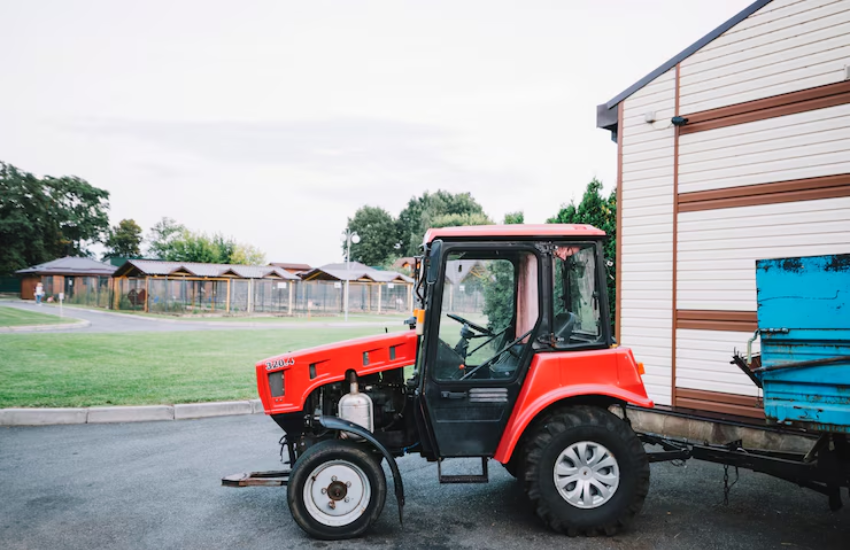On any British farm, efficiency is key. Whether you’re in East Anglia managing arable acres, running a livestock farm in Yorkshire, or handling mixed-use land in the Midlands, your equipment must work as hard as you do. One of the most essential — yet often overlooked — pieces of kit is the farm tipper trailer.
Farm tippers are vital for transporting everything from silage and grain to manure, fertiliser, and general debris. But over time, even the sturdiest trailer begins to show signs of wear, and pushing an ageing machine can lead to costly setbacks. Knowing when to replace your farm tipper could save you time, money, and even prevent dangerous breakdowns.
Here are the most telling signs that it might be time to invest in a new farm tipper trailer.
1. It’s Breaking Down More Often Than It’s Working
This is the most obvious and frustrating sign — your trailer just isn’t reliable anymore. Whether it’s the hydraulics sticking, the axles failing, or the brakes wearing thin, constant repairs not only slow you down but start draining your wallet.
Older trailers can often fall into a cycle of “patch it up” repairs that seem cost-effective short-term, but when you add up labour, parts, and downtime, a new tipper becomes the more economical choice.
Real-world example: A farmer in Lincolnshire reported spending over £2,000 in a single year on welding and wheel bearing repairs before finally switching to a newer model with a reinforced chassis and sealed hubs — maintenance dropped by 80% in the first year.
2. Your Trailer is Showing Signs of Structural Weakness
Take a close look at your trailer. Do you see rust patches? Are there cracks around stress points, such as the hinge brackets or drawbar? Are side panels starting to warp or bow under load?
In the UK’s wet, muddy farm conditions, corrosion sets in quickly. Even high-tensile steel can degrade over years of exposure to slurry, road salt, and moisture. Once structural integrity is compromised, safety becomes a real concern — especially on busy farms with moving equipment and public road access.
3. The Tipping Mechanism Is Slow, Stiff, or Stuck
If tipping is no longer smooth, or the bed sticks at the tipping point, your productivity takes a hit. Slow or partial tipping can lead to uneven dumps, extra time spent clearing material manually, or even trailer instability.
Hydraulic issues can sometimes be repaired, but when the pump, ram, and seals begin to fail together, it may be cheaper and safer to invest in a modern hydraulic system — usually found on newer trailers.
Did you know? New-generation farm tippers now offer dual-ram or telescopic tipping options, reducing cycle times and improving payload control.
4. Your Load Capacity Isn’t Keeping Up With Your Workload
Farming operations evolve. What once was a manageable acreage may have expanded. More land means more material to move — and a small trailer can suddenly feel more like a bottleneck than a tool.
If you find yourself running back and forth across the farm just to move one field’s worth of silage or grain, your trailer may be undersized. Upgrading to a larger-capacity grain trailer or multi-purpose tipper could help you cut fuel usage and labour hours dramatically.
5. You’ve Had a Near Miss or On-Road Incident
UK farm tippers are regularly used for transport between fields and storage areas — often involving road travel. If your trailer sways while driving, lacks proper lighting or reflective markings, or has experienced brake failure, the consequences could be devastating.
Modern trailers are designed with UK road regulations in mind, including full LED lighting kits, compliant braking systems, and improved stability for high-speed towing.
Safety tip: If you’re moving loads over 750kg on a public road in the UK, you must meet the legal trailer standards for lights, brakes, and weight capacity. An old tipper might not meet those anymore.
6. It’s No Longer Compatible With Your New Tractor or Implements
Today’s tractors are more powerful and digitally integrated. They may come with hydraulic systems that exceed the pressure tolerance of an older tipper, or with different hitching systems that are incompatible with old pins or drawbars.
If you’re constantly having to jerry-rig connections or throttle down your equipment to avoid damaging your trailer, you’re not getting the best out of either machine.
7. It’s Holding You Back from Expanding Your Operations
Sometimes it’s not about what’s broken — it’s about what’s missing. Older trailers typically lack the versatility of modern models. Newer tippers can offer:
-
Removable grain chutes
-
Hydraulic tailgates
-
Drop sides for easy loading
-
Tri-axle setups for better load spread
-
Silage extension kits
Having a trailer that’s adaptable to different tasks allows for smoother seasonal transitions and helps you reduce the need for multiple trailers.
8. You’re Spending More on Fuel and Tyres
An ageing, overweight trailer with uneven tyres or poorly aligned axles forces your tractor to work harder. That means more diesel, more engine wear, and more frequent trips to the tyre supplier.
Swapping to a lightweight, well-balanced tipper can immediately reduce strain on your towing vehicle, saving money on fuel and extending the lifespan of both machines.
9. There’s No Trade-In Value Left
Delaying your replacement decision too long can cost you in more ways than one. When trailers get too old, they lose their resale value completely. By replacing your tipper while it still has life left, you can often trade it in or sell it privately to offset the cost of a newer, more capable model.
Conclusion: Is It Time to Invest in a New Farm Tipper?
Replacing your farm tipper trailer isn’t just about avoiding breakdowns — it’s about upgrading your entire workflow. Modern trailers are safer, more efficient, and tailored for the evolving needs of UK farms.
If your tipper is costing you in time, money, safety, or productivity, then it’s time to make the smart move. After all, the right trailer doesn’t just carry loads — it carries your business forward.






